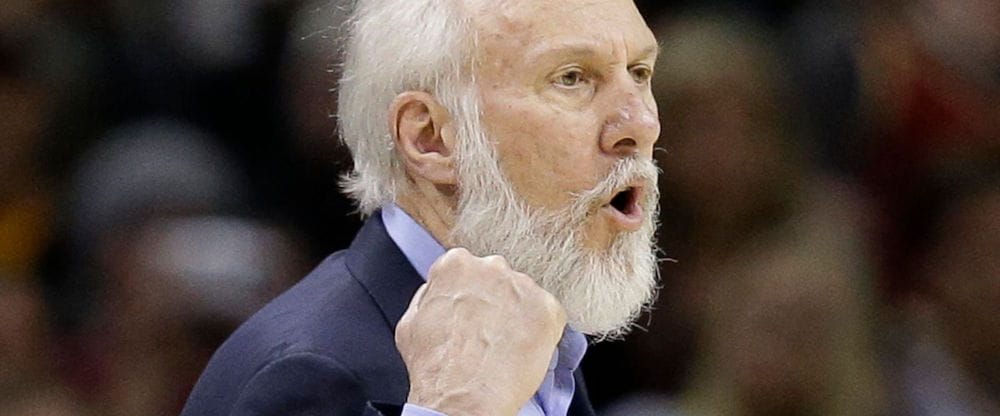
Is the “Rainmaker” Model Holding Your Agency Back From Success?
The term “Rainmaker” is synonymous with financial firms and insurance agencies. It’s the superstar producer(s) or owner, by which the entire operation centers around.
At the 2008 NFL Combine, Chris Johnson of East Carolina University ran the fastest 40 yard dash time ever — 4.24 seconds. For those of you who aren’t football fans or can’t quantify that speed, it’s almost 10 yards per-step.
Afterwards, he would mention that he actually slipped at the beginning and that if he hadn’t, his time may have dipped into the “4.1” range.
While ECU is a relatively small Division 1 school, Chris Johnson made the best athletes at every level look slow. Having a talent like that is going to make any team better. His natural athleticism and God-given ability to run faster than everyone else won out in the long run.
But wait, why are you talking about a football player Chris? Here’s why…
College & NFL scouts scour the country to find this kind of talent. At the same time, they understand that they are doomed if their game plan will only succeed with a superstar talent.
 That’s because to Chris, running a 4.24 40-yard dash is natural. It’s easy. It’d be impossible for him or his coaches to write a “10-Steps to running like Chris Johnson” tutorial to hand out to other players.
That’s because to Chris, running a 4.24 40-yard dash is natural. It’s easy. It’d be impossible for him or his coaches to write a “10-Steps to running like Chris Johnson” tutorial to hand out to other players.
I remember watching ECU games where he would take the ball and in one single cut, he was already 15 years past every single person on the defense.
(Yes I’m a college football junkie to the point of watching Division 1 AA games on ESPN 2 on Wednesday nights; ask me anything about anyone ever and I probably have the answer)
The point is, Chris Johnson was a Rainmaker. An irreplaceable talent who made it look easy.
For a time, financial firms and insurance agencies could get by riding the coat tails of these all-star players. In many cases the Rainmaker is/was the agency/firm owner themselves.
However, the independent agent/advisor space has changed dramatically in the last 25 years. Independents are being squeezed by more advanced and innovative competitors.
Perpetuation is becoming harder and harder because attracting young, capable talent into a boring “pale and stale” industry is becoming extremely difficult.
Online research tools and information is shifting value away from the personal face-to-face relationships that the independent channel has historically relied so much on.
To grow in the competitive landscape we exist in today, there must be a fundamental shift in how agency/firm owners structure their agencies — how they employ producers, CSRs, and how they market their businesses.
The birth (and shortcomings) of the Rainmaker model

Most Rainmakers more times than not, started out in a captive agency or firm. Very quickly they moved up the ranks with a combination of God-given talent, and by simply out-working other agents and producers.
Back in the day, the financial services and insurance industries were very transactional. New agents and advisors were given very little by way of direction or instruction. It was basically a “here’s a rifle — now get out there and hunt” mentality.
In the financial space at the start of the year, there would be fifty gung-ho advisors fresh off of passing their Series 7, ready to take on the world. Out of these fifty, one or two remained a year later.
This cycle continued every year.
The remainder of the reps were good for a few early sales. These included their parents, close circle of friends, and other relatives. They may have talked a few other friends-of-friends into becoming clients but that was about it.
However, those one or two people who “survived”, developed a certain personality that would prove to be critical to the success of their future agencies/firms. This eat-what-you-kill mantra was born out of the pure necessity to put food on the table, pay the rent, and put clothes on the kids’ backs.
At the very same time, this mentality has become equally disruptive to the way agency/firm owners run their businesses. At the end of the day, while the Rainmaker approach isn’t all bad, there are definitely some ill-fated realities with this type of business model.
Reality 1: You are not everyone, and not everyone is a Rainmaker

As I just mentioned, many agency/firms are started by former Rainmakers who made it through the grind of the wire house and/or captive sales culture.
These are people who “put in their time” and know that they can replicate it in the independent world. They understand that they can sell to anyone at anytime with little to no preparation, and make it look as effortless as Chris Johnson did running.
While it’s extremely admirable that many of these folks were able to survive that process, it can also breed a certain mentality and pride that can bottleneck the success of their business, in particular when it comes to staffing and production expectations.
Many Rainmakers expect that everyone who works under them should follow the same steps and struggles that they did coming up in the business.
“Oh, you never cold called or knocked on doors? You’re not going to work here.”
Is this a productive way to think? I think not. Successful sales and service people come in all shapes, sizes, and flavors. To jam them in to the square peg that was someone else’s “way of doing things” is both unrealistic and counter-productive.
Just because someone is a rookie, doesn’t mean they have to pay their dues or “put in their time” like the agency owner did 30 years ago in the wire house. If you have someone who is more motivated and talented than the other players on your team, they need to be on the field (like Chris Johnson was as a rookie) — period.
Give them the push they need to take off and fly.
On the flip side, just because a player has a different style, or maybe had a rough couple months on the job, it doesn’t mean they should be immediately jettison.
Keep in mind that people don’t buy insurance and financial products like they did 20-30 years ago, so the way veterans sold back then compared to the way modern-day agents sell today is likely going to be different and that’s okay.
It should be or you’re probably doing it wrong.
Reality 2: Historically, Rainmakers have been marginal leaders
This isn’t because they aren’t trustworthy or willing to give young agents an opportunity. It’s more because they have never systematized their business. They never needed to. Michael Jordan didn’t need to practice a day in his life. He could have gotten by on talent alone. But when he was hired as President of Basketball Operations for the Washington Wizards, he was far from a superstar in that role and was ultimately fired in 2003.
When asked what their process is from A-Z with a client, Rainmakers will often grab for straws to explain it. Most will say, “Well I don’t know. I just call people and they come in. It’s really quite easy. I don’t understand why the other salespeople can’t do the same.”
Some producers reading this may be nodding their head in agreement, while feeling helpless because they know deep down they aren’t cut from that cloth.
A lot of superstars who own these agencies are great at selling, but they aren’t great at helping or mentoring their understudies and that’s okay, but only if there is a framework in place to fill in those gaps.
Where Rainmakers see a phonebook as the most qualified leads list they could ever get, those beneath them feel their hearts drop, not only because of the unrealistic expectations thrust onto them, but also the lack of direction and understanding that things are simply different now than they were 20 years ago.
There are a few things that are guaranteed in life, one of which is change. With that in mind the next question naturally is, “well how can we get away from the old way of doing things then?”
The answer to that question is likely different for each agency, but there are a few things you can do to give yourself a head start.
Groom everyone, put your pride aside, and put people in the right roles if you want a strong team

Running a successful insurance agency or financial firm is very similar to running an NFL team. You’re always going to need good players and talent. However your talent evaluation and hiring process can’t be throwing spaghetti at the wall every 2 months to see what sticks.
That’s an extremely inefficient way of finding good people for your agency.
I’ll say it right now, and I’m sure I’ll catch some heat for this, but the hire-slow and fire -fast mentality is a flawed and out-dated way of staffing your agency or firm.
Building a strong team isn’t about one or two interviews. It’s not even about one or two months on the job. It’s about the totality of a process that few agencies and firms implement or follow.
More on that in a moment.
I know people in this industry who were hired on top of and/or or let go before they ever had a chance to succeed. It wasn’t their fault at all.
It was a broken agency who didn’t realize they were broken, who had no processes or frameworks in place, who were looking for a quick win — a golden unicorn of a producer who would step in on day one with little direction or nurturing and write $100k in premium each month, end over end.
Is that realistic? I’ll let you answer that.
To be successful, you need to have good scouts, coaches, and players. It’s a team sport from top to bottom. You need to recognize talent, and be able to make lesser talent better. In the draft room, the best player isn’t always available. More times than not you have to make due with what you have and make it better.
You need to coach people up.
If you spend all of your time recruiting superstar, diamond-in-the-rough players, while not coaching and mentoring the rest of your team, your business will never move forward. Those players don’t grow on trees and you likely don’t have the resources to chase them anyway.
If you spent the same amount of time developing and mentoring your existing team as you did searching for their ready-made replacements, you would have a more successful business.
At the same time, if you’re lucky enough to come across (or develop) one of these special talents, you need to utilize them in the right way. Evaluate your existing team before anything else.
Do you have a CSR who is consistently cross selling and rounding out accounts?
Someone who is an absolute stud on the phone? Maybe they aren’t actually a CSR. You ever think of that? Maybe they’re a rockstar producer in disguise who just needs a little push and polish.
People change in this business. CSRs can turn into producers, and fledgeling or burnt out producers might fit the role of CSR better.
Don’t rely on one person. Create a system and culture that will carry you

San Antonio Spurs Coach Greg Popovich – Image Credit ABC News
As independent firms/agencies attempt to grow and expand, their ability to attract enough new business without a structured customer acquisition & retention plan can prove to be a serious uphill battle. The number of new clients who can be “produced” by one or two Rainmakers simply can’t keep up with the overall sales goals of most agencies.
This puts a greater emphasis on both a team approach, and also acquiring customers through other channels like targeted digital marketing, client/COI referral programs, and cross/up selling initiatives.
These are things that most agencies and firms know they should be doing, but often times fall short of because there is simply only so much one or two people can handle, and they don’t have systems in place to make up for it.
The framework is there to copy and it’s not rocket science
There is a common denominator that teams like the San Antonio Spurs, and New England Patriots share. They are always competitive teams who are in the playoffs every single year.
Sure these teams have great coaches and superstar players at key positions, but more importantly, they have an organizational blueprint that they follow and execute, that helps them find and develop talent better than almost every other team in existence.
Have you ever heard of Chris Hogan? Yeah me neither.
Apparently he was a lacrosse player with only one year of football experience at Penn State who went on to play on a couple NFL practice squads. He’s now an integral part of the Patriots offense who just won the Super Bowl last night.
The Patriots are absolutely unbelievable when it comes to finding talent and “fits” for their team and making the most of it. No matter who passes through these organizations, they are always successful because of their internal framework.
In today’s marketplace, for an independent agency to truly thrive, they’re going to have to implement and rely on a system like this, much more than an individual or Rainmaker producer/owner. A system that will succeed consistently when they can’t find a Chris Johnson for their backfield.
The challenge is, unlike captive carriers, many independent agencies/firms don’t allocate the time or money to developing legit training, mentoring and marketing programs for their agencies. It’s why a lot of IA’s try to hire people from captive carriers because they have excellent training programs.
Many IA’s have a hard time telling you who their ideal client is, and the appropriate marketing message to send to them.
This is because they are either understaffed to begin with and simply don’t have the time to do implement, or they’re taking too much money from the pot before reinvesting it into their business.
(If you have the money but not the time, consider hiring an in-house marketing person)
If you want to be a one-man operation forever, there’s absolutely nothing wrong with that — seriously there’s not. If you want to grow and be a larger agency, having training and marketing programs in place is a cost of doing business that you need to allocate financial resources and time to.
It just is.
This includes a comprehensive marketing strategy for both on-line and off-line marketing, and air-tight cross/up sell program, and a bullet-proof customer experience that goes above and beyond when it comes to relationship building.
Without a plan, you’ll be stuck in a vicious cycle of continuously burning and churning, looking for polished sales and support people that either don’t exist or you can’t attract, or afford to hire and keep.
Okay so what is that plan? Show me how!
Here’s the thing, the plan is going to be different for every agency, but here are a combination of marketing, internal processes, and culture building activities you can implement quickly that will put you on the right track — one of the biggest ones being freeing yourself and your team up from time-sucking tasks that could be delegated so you can focus more time on your team and business instead of just in it:
- Utilize carrier call centers for day-to-day policy servicing and questions, and condition your clients to actually use them
- Encourage customers to download their carrier’s mobile app (if they have one) for basic policy questions or changes
- audit your book for mono-line business and cross-sell those people asap
- develop a Referral program and tell every single person about it; stop forgetting to tell people
- use automation to improve your customer on-boarding, but don’t forget to be a human during the process too
- Blog monthly on your insurance agency website and promote that content by running Facebook Ads to people within 25 miles of your agency (don’t just Boost the post)
- Run some Google AdWords to drive traffic to your offer/website
- Do some team building to build camaraderie (paintball is awesome!)
Conclusion: Don’t run your agency like the wire-house or captive environment you were dying to escape from 20 years ago

One thing I’ve learned in both the insurance and business space is, when you run fast naturally, it’s hard to empathize with slower people.
It’s hard to see value in what they bring to the table.
It’s easy to get frustrated because they aren’t as fast as you. Hell, they might not be half as fast as you.
You wish they would just get it. Here’s the reality: they might never get it.
That’s ok. Don’t run out and fire all of your producers and service people who are running slower than you. Don’t be disappointed in them.
Instead, take steps in creating the business you set out to with a framework and culture that bulletproofs your success and allots you the freedoms you got into this business for in the first place.
You can’t do it alone.
You need a team.
You need a plan.
You need to coach.
You need a winning culture.
The Rainmaker model is not for everyone.
In fact, it might not be for anyone.
P.S. If this article hits home for you, do us a quick favor and share it below, and be sure to like the AE Facebook page!